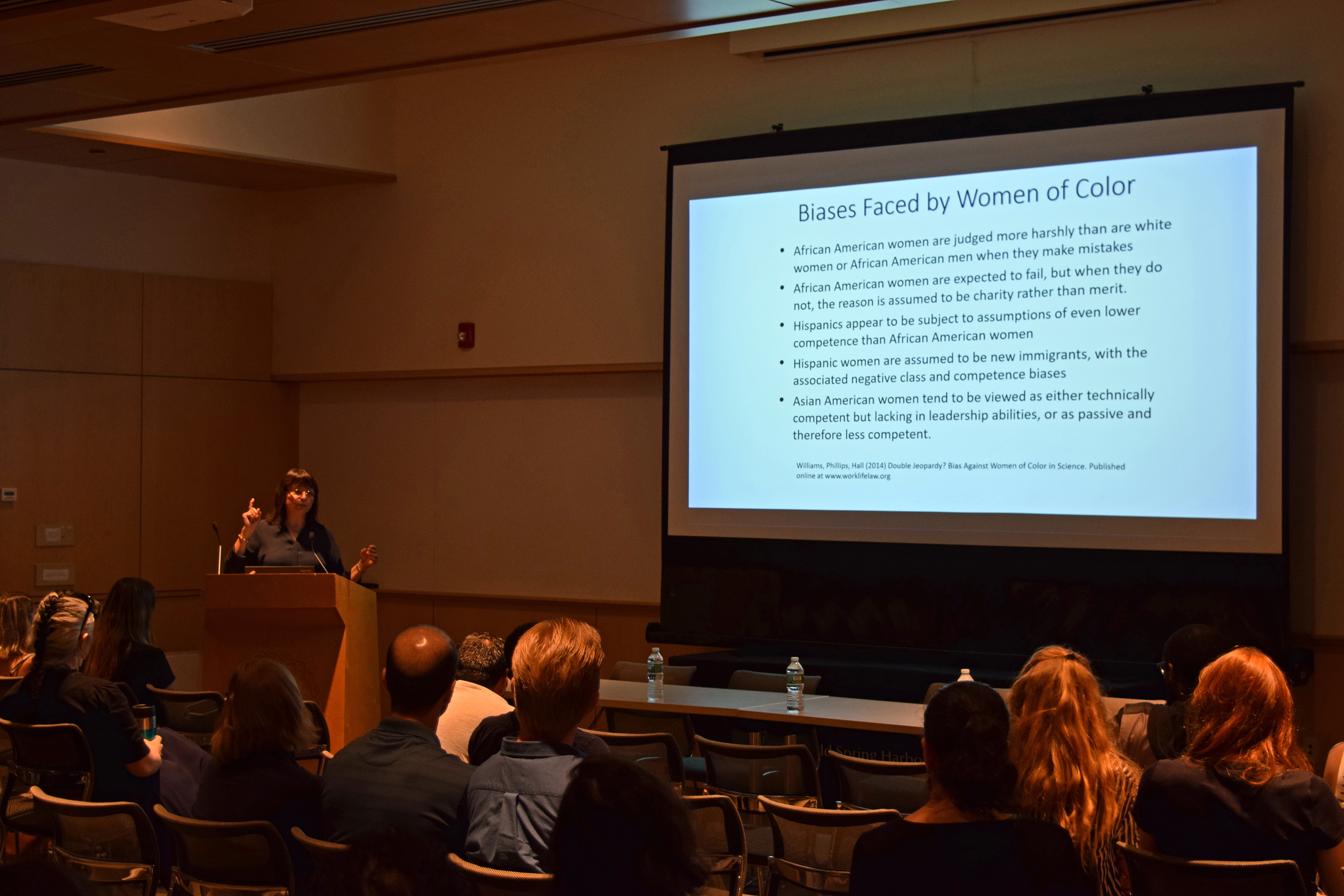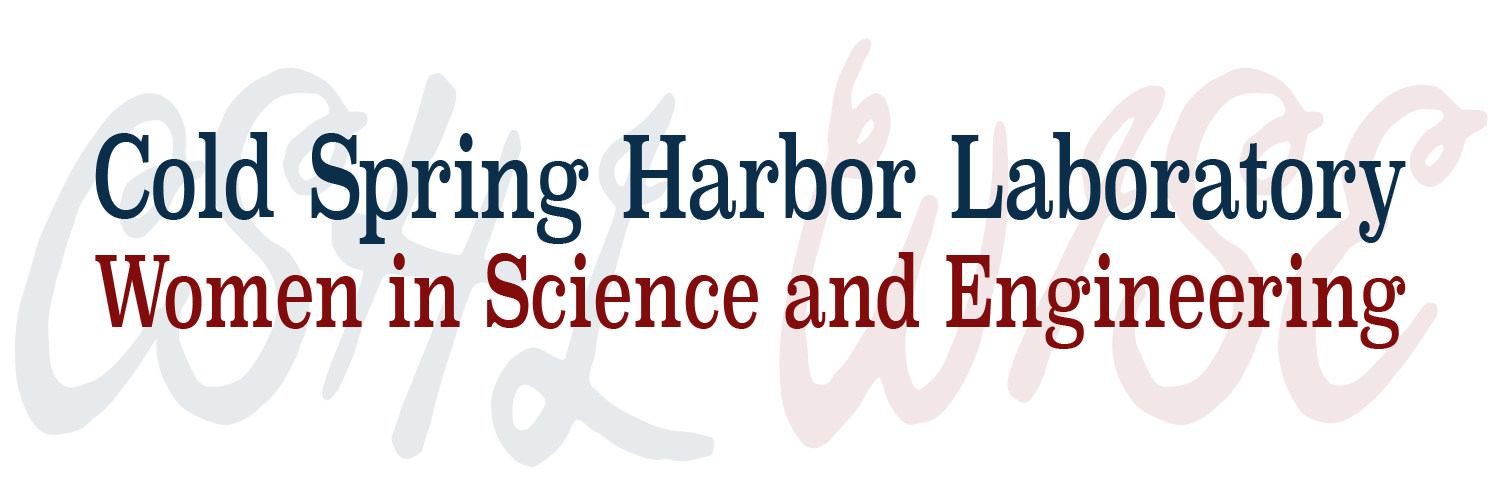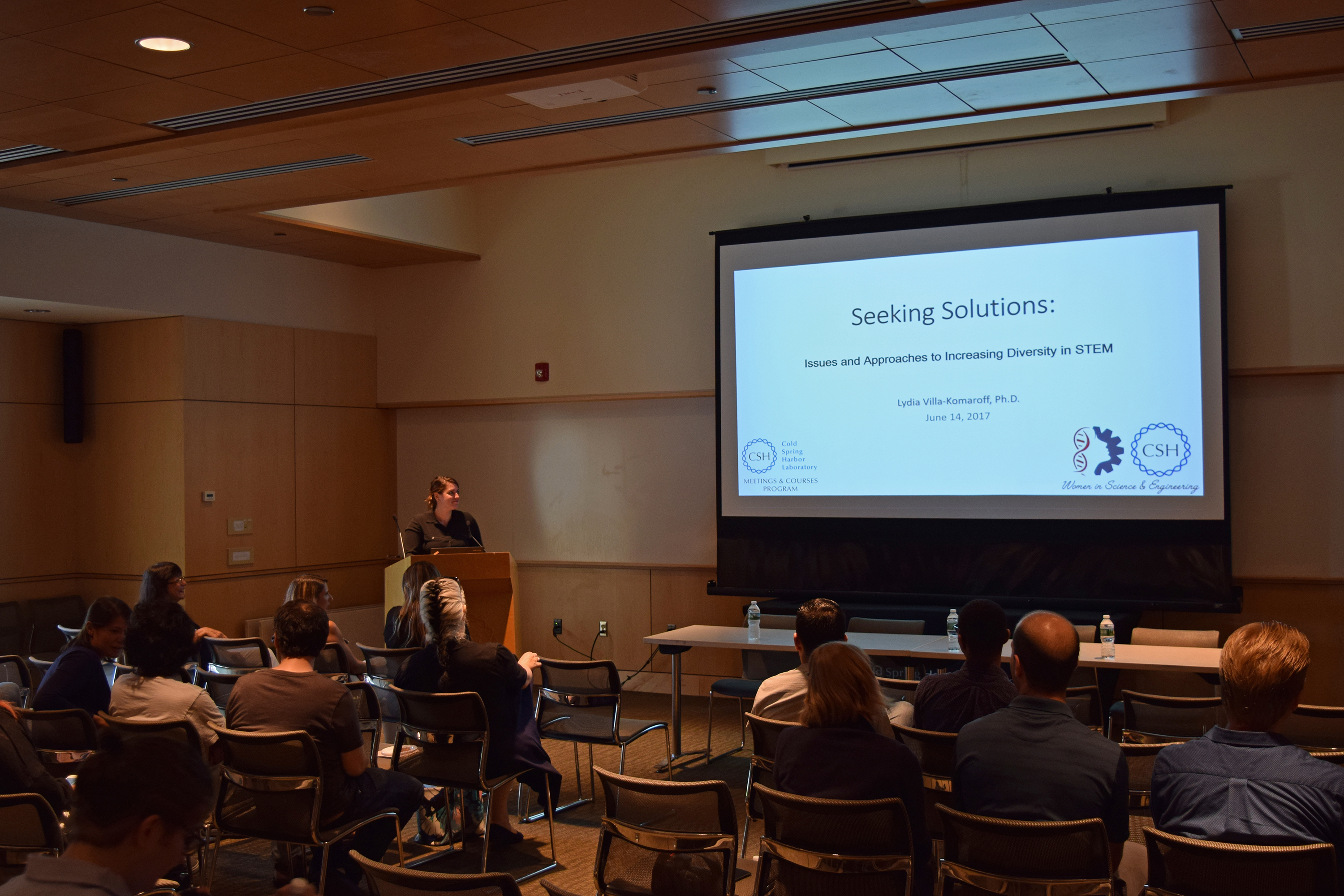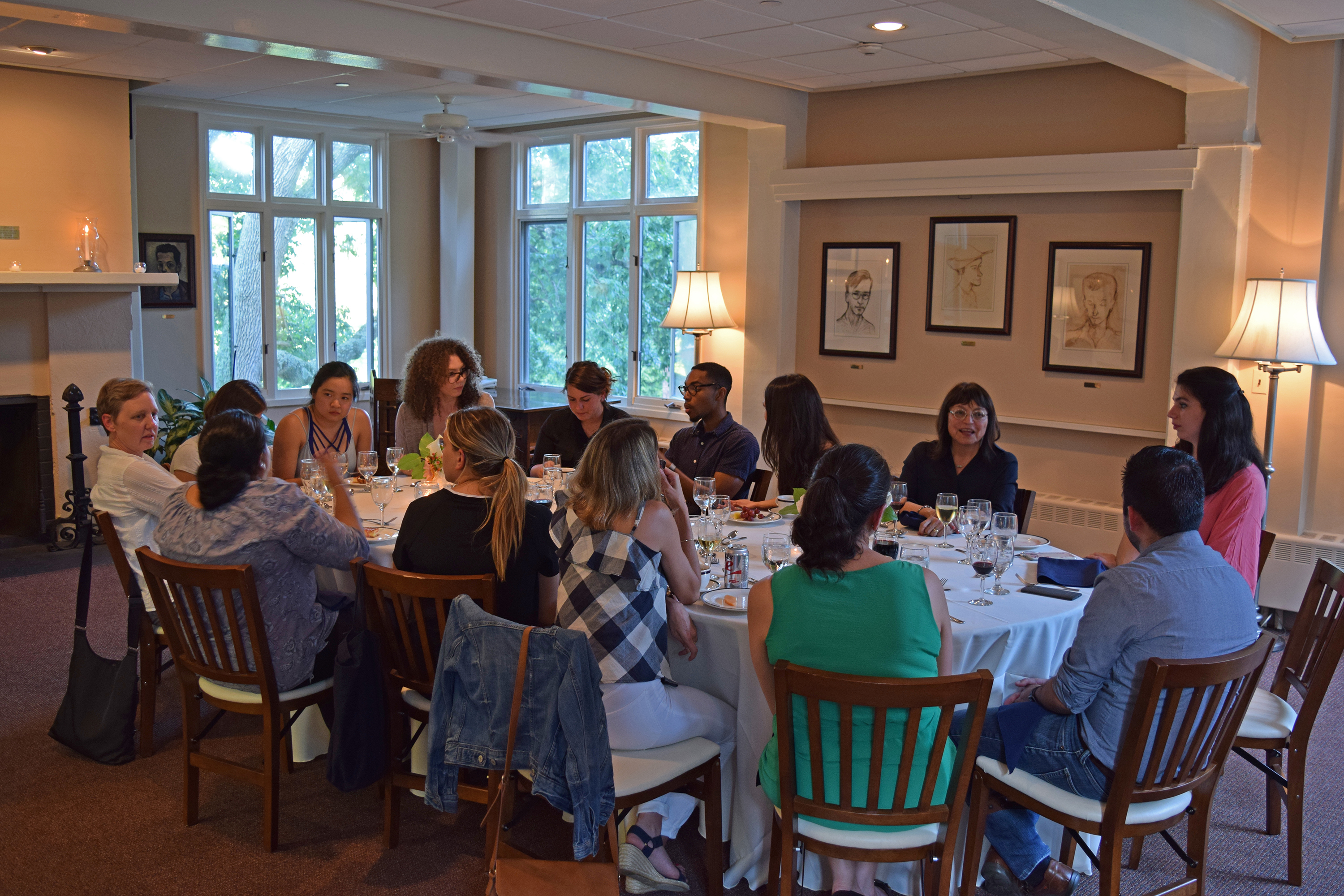 Underrepresented minorities face unique challenges and often have difficultly getting their voice heard. As part of our efforts to bring attention to issues of diversity in science and initiate discussions of how CSHL can best support diversity, WiSE partnered with Meetings & Courses, and the PDLC to host a Special Lecture by Lydia Villa-Komaroff followed by an In-House Panel discussion about diversity in STEM.
Underrepresented minorities face unique challenges and often have difficultly getting their voice heard. As part of our efforts to bring attention to issues of diversity in science and initiate discussions of how CSHL can best support diversity, WiSE partnered with Meetings & Courses, and the PDLC to host a Special Lecture by Lydia Villa-Komaroff followed by an In-House Panel discussion about diversity in STEM.
Lydia Villa-Komaroff received a PhD in molecular biology from MIT in 1975, making her the third Mexican American woman to receive a scientific PhD in the US. She has dedicated much of her life to making sure that she is far from the last, co-founding The Society for the Advancement of Chicanos/Hispanics and Native Americans in Science (SACNAS), which helps increase the representation of minorities in science. In her words, “Science, and our society, are stronger when the people doing science reflect our society as a whole.” Villa-Komaroff has had a very successful, and diverse career, researching growth factors and development, teaching at the University of Massachusetts Medical School (UMMS) and Harvard, directing research for multiple research institutions and serving on the board of biotechnology companies.
Lydia spoke about the importance of recognizing the existence of implicit biases and explicitly acknowledging them. Following her lecture we held a panel discussion where CSHL scientists who identify as underrepresented minorities in science discussed their personal experiences and opinions on the topic and answered questions from the audience. We all benefit from diversity and we are hopeful that, if we all work hard, the future of STEM will reflect this diversity that makes us strong.





